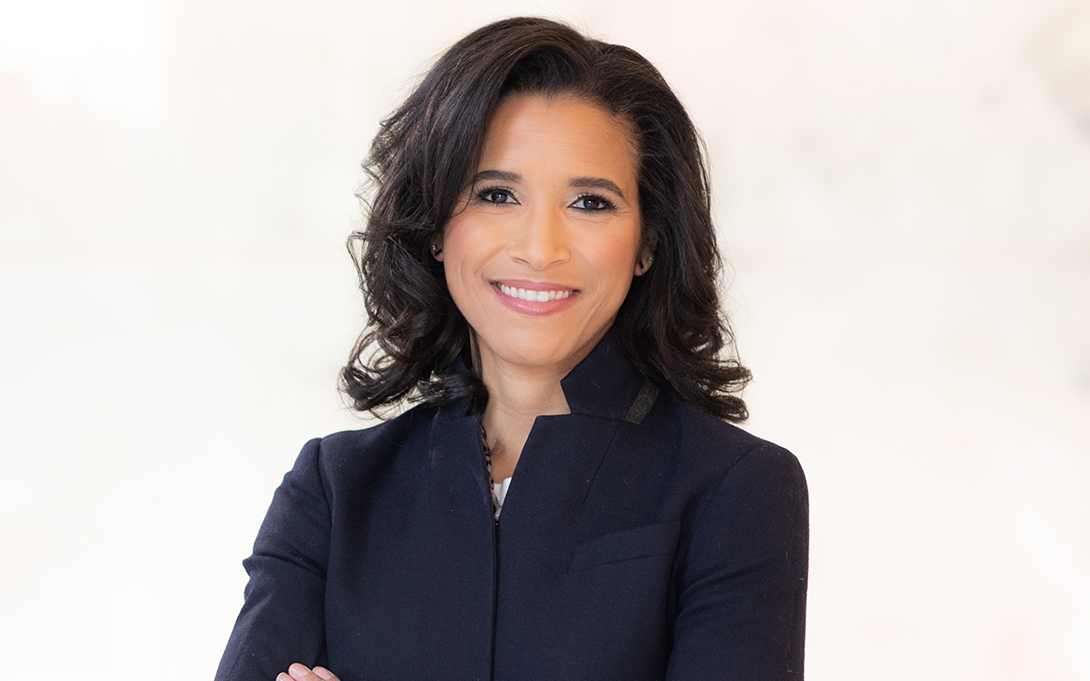
New FinTech collaborations boost Ford School’s financial policy offerings
The Ford School is expanding its offerings of financial policy courses with FinTech (financial technology) Policy and FinTech Entrepreneurship classes. Taught by professor of practice Adrienne Harris, these new courses introduce students to the ways fast-changing technology is transforming finance. Harris, who most recently helped run an insurance start-up in Silicon Valley, previously served as a Special Assistant to President Barack Obama at the White House.
The new course offerings are part of a larger FinTech Collaboratory that includes the Ford School, the Ross School of Business, the College of Engineering, and other units on campus. The FinTech Collaboratory members, including Harris and Dean Michael S. Barr, are researching a range of issues, including better understanding cryptocurrency markets, combatting market manipulation in high-frequency trading, and setting up new ways of financing green infrastructure projects.
One key focus for collaboration is how to make the financial system work better for low- and moderate-income households, here in the United States and in the developing world. Harris and Barr, for example, are leading a project with the Gates Foundation on Central Banks of the Future, focusing on policies and practices that can make the financial system more inclusive. Harris argues that “technology can help lower the costs and expand the reach of financial services to poor households.”
Consumer protection is a core concern. “With some of these fintech apps, you have financial products and services that arguably no one is in charge of,” says Christie Baer, JD, assistant executive director of U-M’s multidisciplinary Center on Finance, Law & Policy (CFLP), which supports the FinTech Collaboratory. “Without oversight, these products and services could be used to exploit the public.”
In the U.S., the Dodd-Frank Wall Street Reform and Consumer Protection Act of 2010 created authority for various federal regulators to oversee certain financial services and products. In the last few years, however, there has been a drive to deregulate the financial sector, as well as a large shift to virtual transactions that consumers may not fully understand. Some loan apps, for example, charge enormous interest rates and disguise their fees.
Founded in 2013, the CFLP unites faculty and students from more than a dozen U-M schools, including the Ford School, to create a safer and fairer financial system. The FinTech Collaboratory plans to bring together courses across campus in a coherent program, which Michael Barr, who serves as faculty director of the CFLP, says, “will teach about the financial regulatory structure, the public policy context, laws and regulations that affect start-ups, and how financial policy affects households and businesses.”
“The FinTech Collaboratory will be out in front, shaping policy,” says Barr. “U-M is uniquely positioned to come up with big solutions, because of our interdisciplinary approach. Elsewhere, you might hear about FinTech only in business schools. Here, we put together a cross-campus collaboration to solve ‘wicked problems’ in finance and policy.”
Learn more about the role of FinTech during COVID-19 in Adrienne's Michigan Minds podcast below:
Below is a formatted version of this article from State & Hill, the magazine of the Ford School. View the entire Spring 2020 State & Hill.
More news from the Ford School